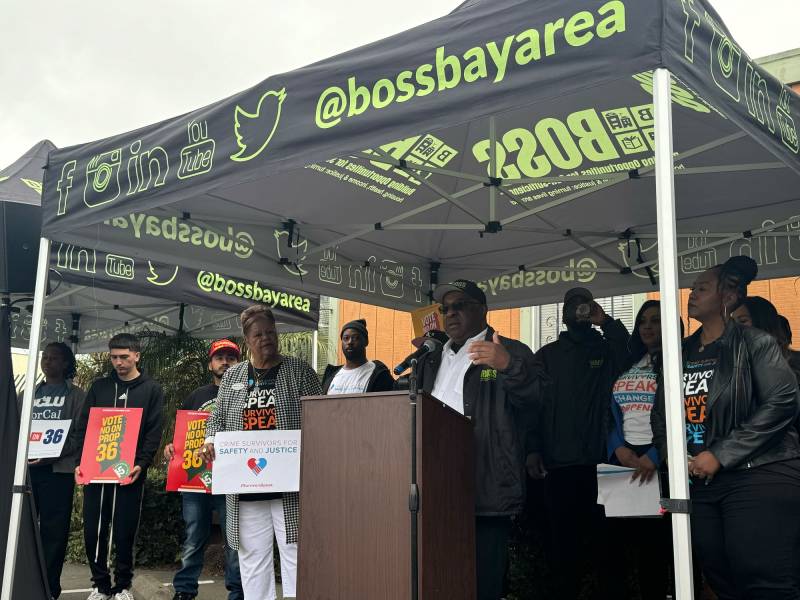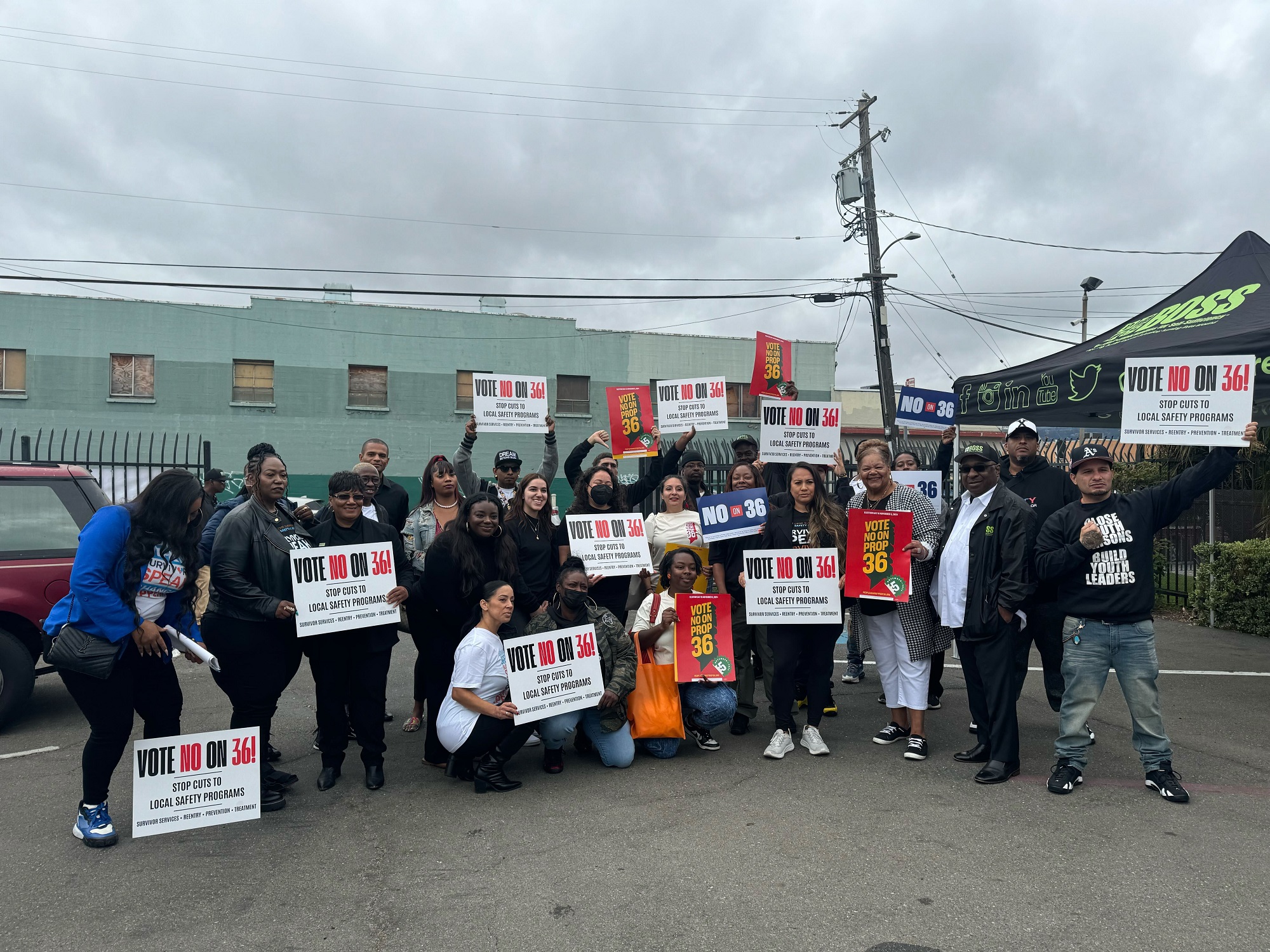Oakland’s first trauma recovery center is urging the public to vote no on Proposition 36, a ballot measure that would slash millions in funding for rehabilitation centers and other treatment programs.
Proposition 36 would also toughen penalties and lengthen prison sentences for some low-level theft and drug possession crimes — reclassifying these misdemeanors as felonies if the measure is passed.
Building Opportunities for Self-Sufficiency (BOSS), a nonprofit funded by Proposition 47 grants, provides vital community services such as clinical psychology treatment and connections to employment and housing opportunities. That funding would be largely wiped out if voters approved Proposition 36.
“If Prop. 36 passes, it will impact all of the Prop. 47 funded programs that are in place to help individuals get their lives back,” said Donald Frazier, the founder and CEO of BOSS.



